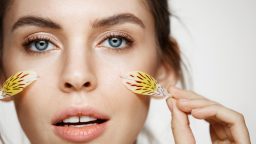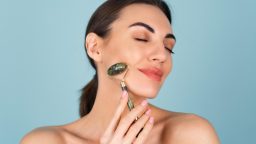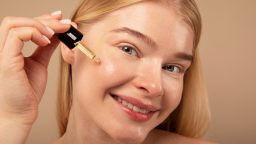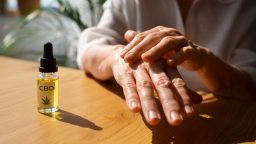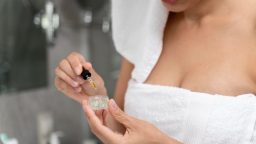When it comes to beauty and self-care, we often think of skincare routines, makeup, and hair care. However, the connection between mental health and beauty runs much deeper than just the surface. The state of our mental health can significantly impact how we perceive our appearance, how we take care of ourselves, and how we engage with the world around us. Likewise, practicing beauty rituals can have a profound effect on mental well-being, boosting self-esteem and providing a sense of calm and relaxation. Let’s explore how mental health and beauty are connected and how nurturing both can lead to a happier, more confident you.
- Mental Health Influences How We Perceive Our Appearance
Our mental state plays a significant role in how we view ourselves. When we’re stressed, anxious, or depressed, it’s common to have negative thoughts about our appearance. For example, people who are experiencing low mental health may notice blemishes or imperfections more intensely or feel dissatisfied with their overall look, even if others don’t notice these details.
- How it affects beauty perception: Low self-esteem, depression, and anxiety can often distort how we see ourselves. These negative feelings can make us feel less attractive, which can lead to less self-care and neglect of our physical well-being. A person may stop maintaining their skincare routine or even avoid looking at themselves in the mirror, which creates a cycle of feeling unattractive and unworthy.
- Beauty Rituals Can Boost Mental Health
Taking time to care for your appearance can serve as a form of self-care, helping you feel more in control and boosting your self-esteem. Whether it’s through a 10-minute skincare routine or a full pampering session, these beauty rituals can offer moments of mindfulness and relaxation.
- How it helps: Beauty rituals, such as applying a nourishing face mask or doing a relaxing bath, provide an opportunity to step away from daily stresses. Engaging in self-care activities has been shown to reduce stress, improve mood, and foster a sense of well-being. For some, these moments of “me time” can be transformative for mental health, offering a break from overwhelming thoughts and emotions.
- Skincare and Stress Reduction: A Soothing Connection
The act of caring for your skin has more than just physical benefits. Skincare routines can be incredibly soothing, especially when combined with calming scents, gentle facial massages, or a warm bath. These activities allow your mind to slow down and focus on the present moment, which is an effective way to reduce stress.
- How it helps: Skincare routines are often repetitive and can be meditative in nature. Massaging a moisturizer into your skin, applying a hydrating serum, or simply washing your face can provide a calming effect, helping to ease anxiety and stress. In turn, this sense of relaxation can reduce feelings of overwhelm and create a positive feedback loop, benefiting both your mind and your skin.
- Makeup as a Confidence Booster
Makeup isn’t just about enhancing appearance—it can also serve as a powerful tool for boosting confidence. Many people find that applying makeup helps them feel more put-together and gives them a sense of control over how they present themselves to the world. This can be especially empowering for people dealing with self-esteem issues or those navigating anxiety and depression.
- How it helps: Makeup can act as a form of self-expression, giving individuals the opportunity to experiment with different looks and create a sense of empowerment. For some, wearing makeup can help mask feelings of insecurity or hide signs of fatigue, making them feel more confident and better able to face the world. It’s important to note that makeup should be used in a way that makes you feel good about yourself—not as a mask to cover up feelings of inadequacy.
- The Role of Physical Appearance in Self-Esteem
Physical appearance and self-esteem are closely linked. When we feel good about how we look, we are more likely to feel confident and engage positively with others. On the other hand, when we feel dissatisfied with our appearance, it can lead to feelings of insecurity and lower self-worth. The good news is that improving self-care and focusing on our physical well-being can have a positive impact on mental health.
- How it helps: When you take the time to care for your skin, hair, or body, it can promote feelings of pride and accomplishment. Looking in the mirror and feeling good about what you see can lead to increased confidence and a greater sense of self-worth. A positive self-image, in turn, is closely linked to better mental health, as feeling good about oneself fosters an optimistic mindset.
- Connection Between Body Image and Mental Health
Our body image—the way we perceive our bodies—has a significant impact on our mental health. When body image issues arise, they can lead to conditions such as body dysmorphia, eating disorders, anxiety, and depression. A negative body image can prevent individuals from fully engaging in social activities or maintaining healthy relationships.
- How it helps: Working on improving body image through beauty and self-care practices can help improve mental health by encouraging acceptance and appreciation of one’s body. Gentle activities such as yoga, walking, or simply wearing clothes that make you feel good can help build a positive relationship with your body. Practicing kindness towards yourself and embracing your appearance can also foster a healthy mindset and improve overall well-being.
- The Impact of Beauty on Social Well-Being
How we present ourselves to the world can affect our interactions with others. Feeling confident about our appearance can make us more willing to engage socially and be more open with those around us. For people struggling with anxiety, depression, or social phobia, a positive beauty routine can provide the confidence boost needed to interact comfortably with others.
- How it helps: Taking care of your appearance can help you feel more social and connected. For instance, spending time on grooming, styling your hair, or picking out an outfit that makes you feel good can help reduce feelings of self-consciousness. This sense of confidence can lead to better social interactions, improved relationships, and a sense of belonging, all of which are essential for mental well-being.
- The Healing Power of Aromatherapy
Aromatherapy, often used in skincare products like essential oils or candles, has been shown to reduce stress, improve mood, and enhance relaxation. Scents such as lavender, eucalyptus, and chamomile have calming effects that can promote mental clarity and emotional healing.
- How it helps: Incorporating essential oils or fragrant skincare products into your beauty routine can provide a calming experience. Aromatherapy can trigger positive responses in the brain, reducing stress levels and boosting mood. Pairing this with a facial massage or a relaxing skincare ritual can help soothe both the mind and the body.
Conclusion
The connection between mental health and beauty is a deeply personal one, as taking care of our skin and engaging in self-care rituals can have a profound impact on our emotional well-being. From boosting self-esteem with makeup to reducing stress through skincare, there are many ways in which beauty routines can promote mental health. By nurturing both our inner and outer selves, we can create a sense of balance and harmony that enhances our overall well-being. Whether it’s through a mindful skincare routine, applying makeup to boost confidence, or simply spending time focusing on our appearance, self-care plays a vital role in maintaining both mental and physical health.
